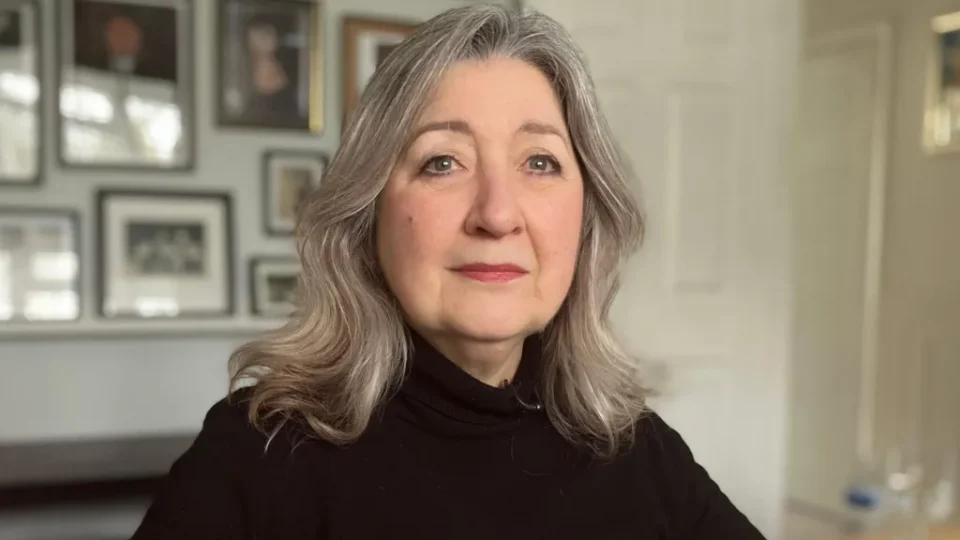“I cleared my mortgage a decade ago, thinking I was free from debt, and now I find myself in this dreadful situation,” expresses leaseholder Diane Cleveland.
She is among nearly 100 property owners in a south-east London estate facing a staggering £21,000 fee from their freeholder, Greenwich Council, for roof replacements.
Some leaseholders argue that the repairs are unwarranted, while others are burdened with inflated costs meant to support maintenance on adjacent council properties.
A representative from the council emphasized their commitment to ensuring all residents live in safe homes, noting that the costs also encompass factors such as management and insurance, which could account for the higher quotes.
The council asserts that a £430 million refurbishment initiative is crucial to fulfill its landlord obligations for tenants residing at Middle Park Estate in Eltham.
However, leaseholders expressed to BBC London their desire for more transparency regarding the pricing of these works, believing they are being charged excessively for repairs on council properties.
The properties in question consist of houses converted into two to four maisonettes, where leaseholders and council tenants often share roofing.
Karolis Arlauskas, a building specialist and leaseholder in the area, asserts that his roof is in satisfactory condition and only requires minor maintenance.
Despite this, Greenwich Council has insisted that a complete replacement is necessary.
“The roof is in pretty good shape for its age. It just requires some tender loving care and maintenance; it can last for many more years,” Mr. Arlauskas states.
He shares premises with two other leaseholders on the ground floor and two council tenants above.
He mentions receiving estimates for the work that are half of the amount being charged by the council, which has pegged the cost at £71,000.
“I’m baffled by how they arrived at that figure,” he remarked. “It seems excessive for this type of roof.”
Mr. Arlauskas contends that his share of £21,000 as a leaseholder is twice the market value.
Homeowners have been presented with several payment options for the repairs, including a zero-interest repayment plan extending over eight years.
Ms. Cleveland voiced her concern over this arrangement, indicating it would impose a heavy financial strain.
“I’m uncertain if I can manage that. Spending an additional £200 from my pension feels nearly untenable,” she remarked.
Other owners share similar worries about being overcharged for the council’s refurbishment work.
Leaseholder Ashlin Green noted that the roof repair costs appear to be financing other initiatives within the council’s capital repair program.
She too faces a liability exceeding £21,000 for her share of the project.
Ms. Green described the entire undertaking as “massive,” mentioning new windows being installed on a different estate, along with kitchen and bathroom updates for council tenants.
“It seems like the funds identified for the roofs, which are inflated by £11,000 per leaseholder, might be subsidizing other projects included in this extensive contract,” she added.
Residents have sought legal counsel but were advised that challenging the charges would necessitate hiring a specialist solicitor, with costs beginning at £50,000.
The leaseholders who spoke with the BBC expressed their dissatisfaction with receiving a generic template letter that lacked any personalization regarding the necessity of repairs for their roofs.
It is reported that the council has since assured residents that each roof will undergo a reevaluation before any work commences.
The repairs are being conducted under a Section 20 notice using a list of approved suppliers and contractors.
Another resident, who prefers to remain anonymous, stated that when they inquired about the charges with the council, they received an unhelpful reply, merely being told, “this is value for money,” without any access to tender information.
They feel “intimidated and cheated” by Greenwich Council.
Councillor Charlie Davis, the deputy leader of the opposition at Greenwich Council, remarked that the council “must clarify” the costs associated with the proposed works.
“Residents have the right to question the charges levied by the council, and I believe the council should maintain transparency in this matter,” he added.
In response, a spokesperson for Greenwich Council stated: “We are dedicated to providing all residents with a secure and suitable home that meets their needs.
“The expenses incurred by our contractors encompass crucial elements such as management, welfare, insurance, and other costs, which can make residents’ quotes not directly comparable to those from the council.
“Until new legislation is enacted, the council is obliged to ensure it fulfills its landlord duties by delivering work of a high standard while minimizing disruption for all residents, in compliance with health and safety regulations.”
Sebastian O’Kelly, director of the Leasehold Knowledge Partnership, which offers guidance to leaseholders, encourages residents to contest the council’s actions.
He suggests that residents should enlist the services of a quantity surveyor to assess the work and prepare a professional witness statement.
“It may not have been wise to combine social and private ownership within the same building, but it has occurred, and leaseholders deserve fair treatment,” Mr. O’Kelly concluded.


